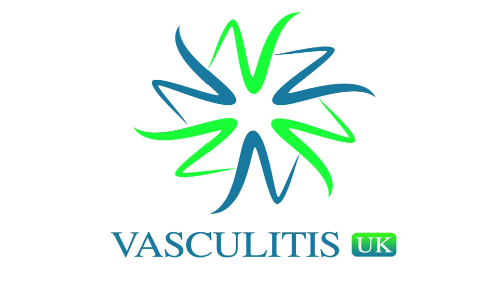Patients taking immune-suppressants should not receive live vaccines such as yellow fever, typhoid and measles.

Live vaccine contains a small amount of the infection itself. Under normal circumstances the patient can fight off this small amount of infection but this is not possible for the vasculitis patient. This will have implications for holidays in destinations and where live vaccines are recommended, eg Africa, Asia, and Latin America.
Flu and Pneumonia vaccines are recommended for vasculitis patients. These are not live vaccines. Where the patient is unsure about a particular vaccine it is important to speak to the doctor about this issue. For further information regarding the pneumonia vaccine please follow this link.
For any other types of vaccination it is essential to question the need or reason for these. You should ascertain what they contain and discuss any concerns with the GP.
Influenza vaccination information
Autumn is the annual flu jabs time. Here is some information which you may find helpful.
Important: We would advise that, if you are in any doubt about whether it is appropriate for you to have the vaccine or if you are currently unwell or flaring, then you should first check with your GP and/or consultant for advice and guidance.
This year there are three vaccines that may be given to protect against flu. Two are inactivated vaccines for injection and one is a nasal, live attenuated vaccine (sprayed into the nose).
The two inactivated vaccines that are injected are fine for immunocompromised patients such as vasculitis patients and indeed highly recommended. The mortality rates are higher for us than any other “at risk” group. Indeed if you also have diabetes, heart disease, kidney disease or lung problems then you are even more at risk.
The nasal (Fluenz) vaccine is being recommended for children from 2 to 17 years old. However it should not be given to immunocompromised children. Nor should it be given to children who are in contact with immunocompromised adults since as it’s live it may be transferred. Children can be given an injection of the inactivated vaccine as an alternative but it is known to be less effective for young people.
The NHS has produced a leaflet Protecting Your Child Against Flu. This contains a section about children who shouldn’t have the nasal vaccine.
Carers and others that live with immunocompromised patients are advised to be vaccinated too. However, it appears to be up to the local GPs as to whether this will be a free vaccination or not.
Shingles vaccination for the age group 70 – 79
There is currently an NHS health promotion to offer shingles vaccination to those in the age group 70 to 79. Prof Harper and Dr Matt Morgan have provided this information for the benefit of vasculitis patients:
“The new shingles vaccine for people aged 70 and 79 is a live vaccine and may cause illness in some people whose immune systems are not working properly due to their disease or to some types of immunosuppressive medication. This includes people taking high dose steroids, chemotherapy drugs and some other immunosuppressants.
Current guidance from NHS England is that the vaccine should not be given to:
• People who have been taking prednisolone 40mg per day for 1 week or more within the last three months
• People who are currently taking prednisolone 20mg per day or more
• People who have had cyclophosphamide treatment within the last 6 months
The advice from Public Health England (August 2013) states that “Therapy with low-doses of methotrexate (<0.4 mg/Kg/week), azathioprine (<3.0mg/Kg/day) and 6-mercaptopurine (<1.5 mg/Kg/day) for treatment of rheumatoid arthritis, psoriasis, polymyositis, sarcoidosis, inflammatory bowel disease and other conditions are not considered sufficiently immunosuppressive and are not contraindicated for administration of zoster vaccine.”
The advice for people taking mycophenolate, leflunomide, ciclosporin or other similar drugs alone, or in combination with prednisolone less than 20mg per day, is not clear and these people should discuss the possible risk of having the vaccine with their GP or Hospital Specialist.
There is no current specific advice regarding the safety of this vaccine for people being treated with therapeutic antibody drugs and similar “biologic therapies” (rituximab, infliximab, adalimumab, etanercept, abatacept, anakinra, campath/alemtuzumab and similar drugs) and people who have received these drugs should discuss the safety of vaccination with their hospital specialist. There is general advice that live vaccines should not be given to people currently being treated with most of these “biologic” therapies or within 6 months of receiving anti-cytokine drugs (anti-TNF, anti-interleukin 6, anti-interleukin1etc).
The vaccine can be given safely to people using only inhaled steroids (for asthma or other lung disease) or hydrocortisone steroid replacement therapy provided they do not also come under one of the groups above.”
Further Information on Shingles
For general information about shingles, including causes, symptoms and treatment options see: NHS Choices – Shingles. The page also includes a video about shingles.
